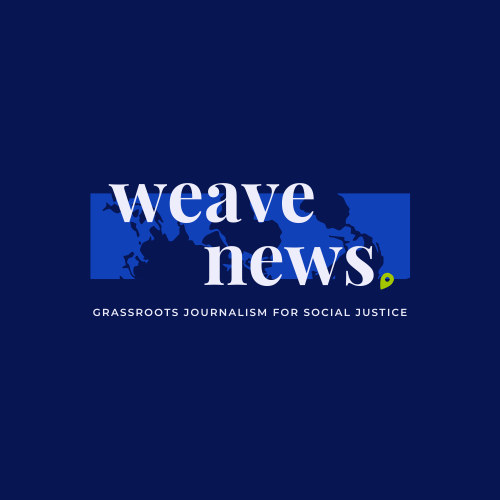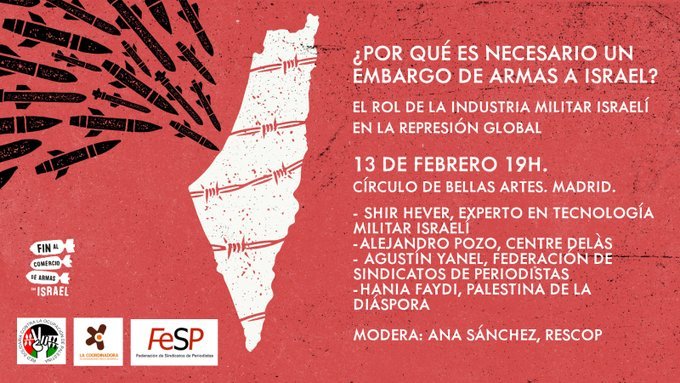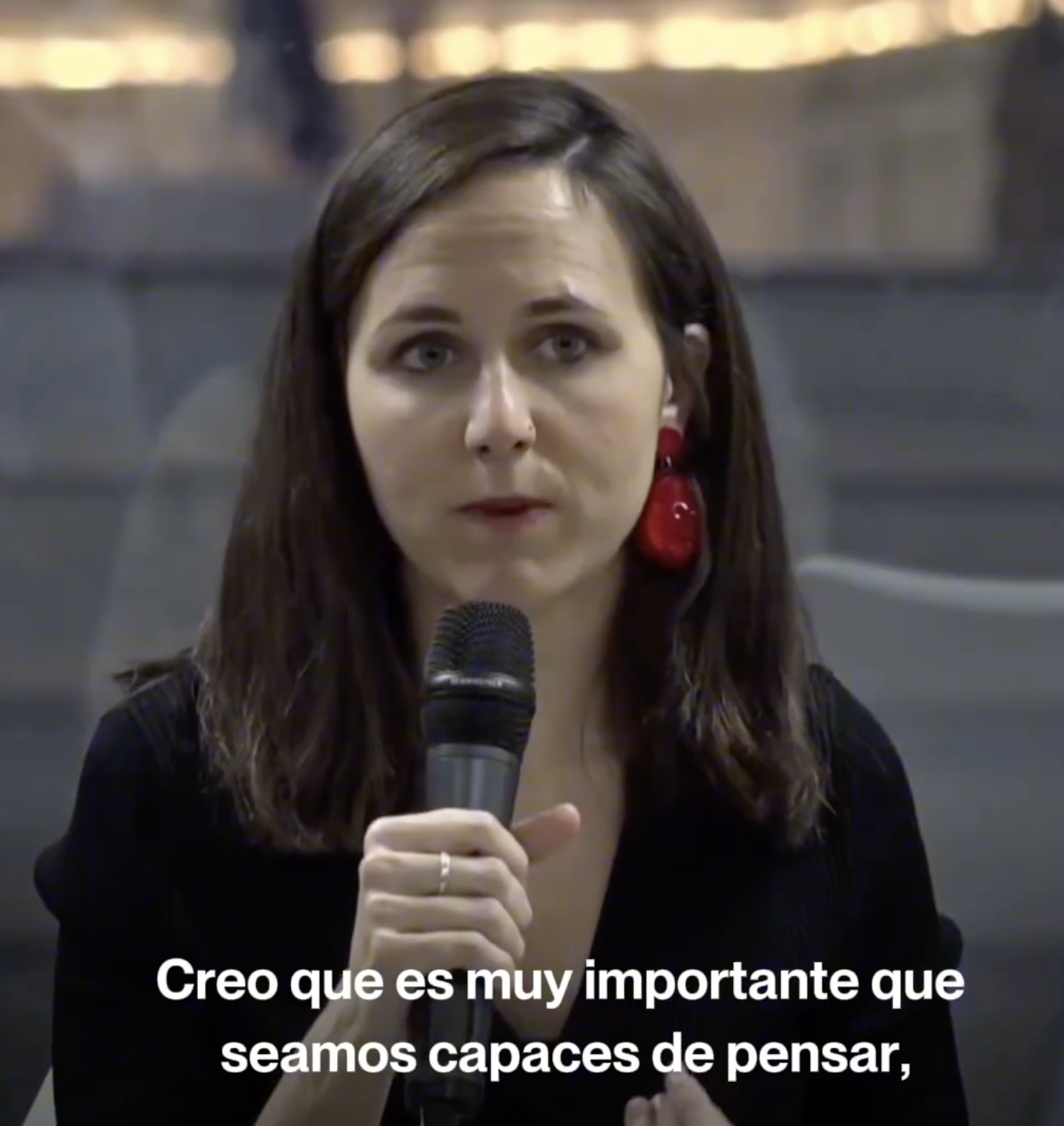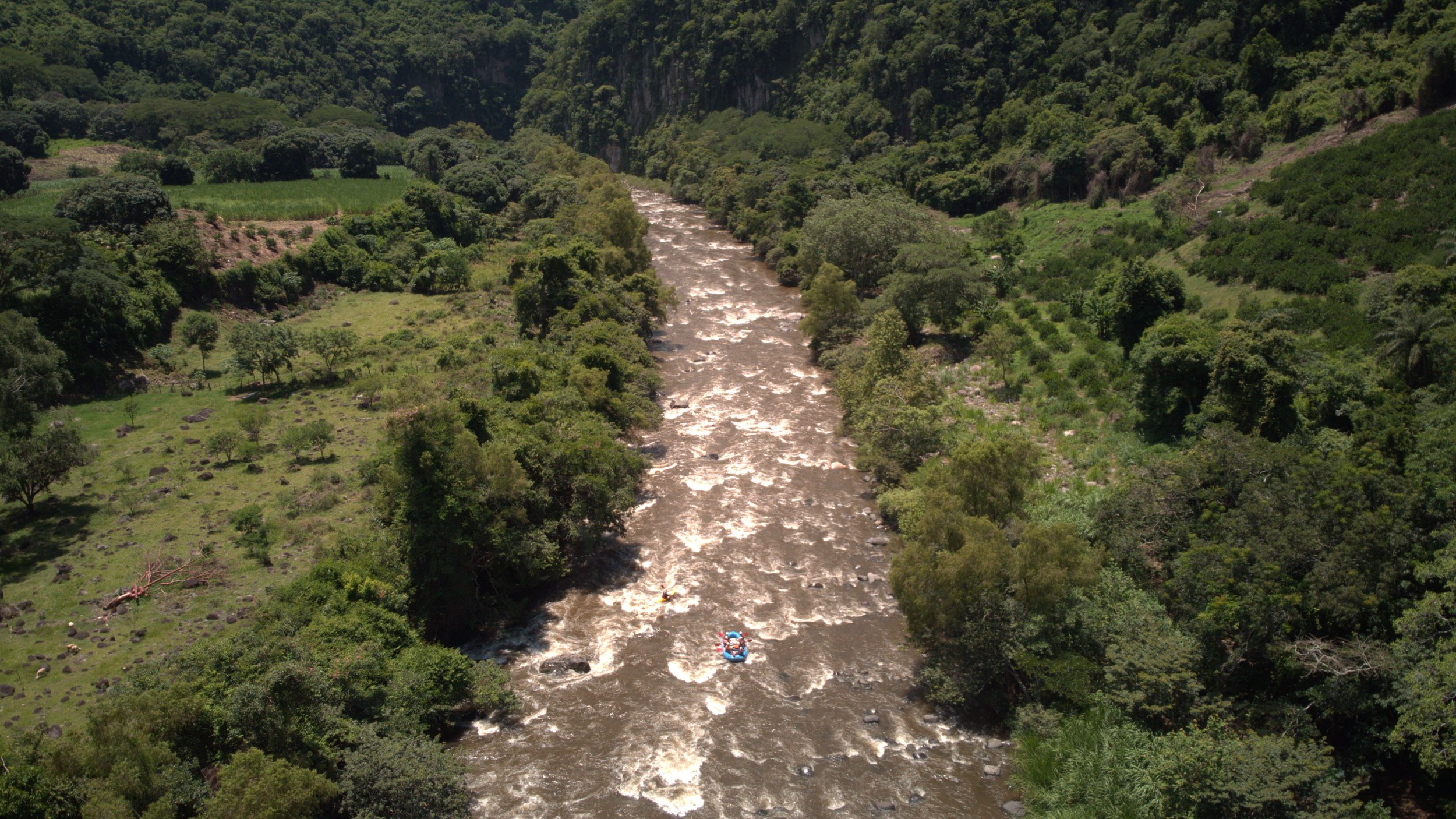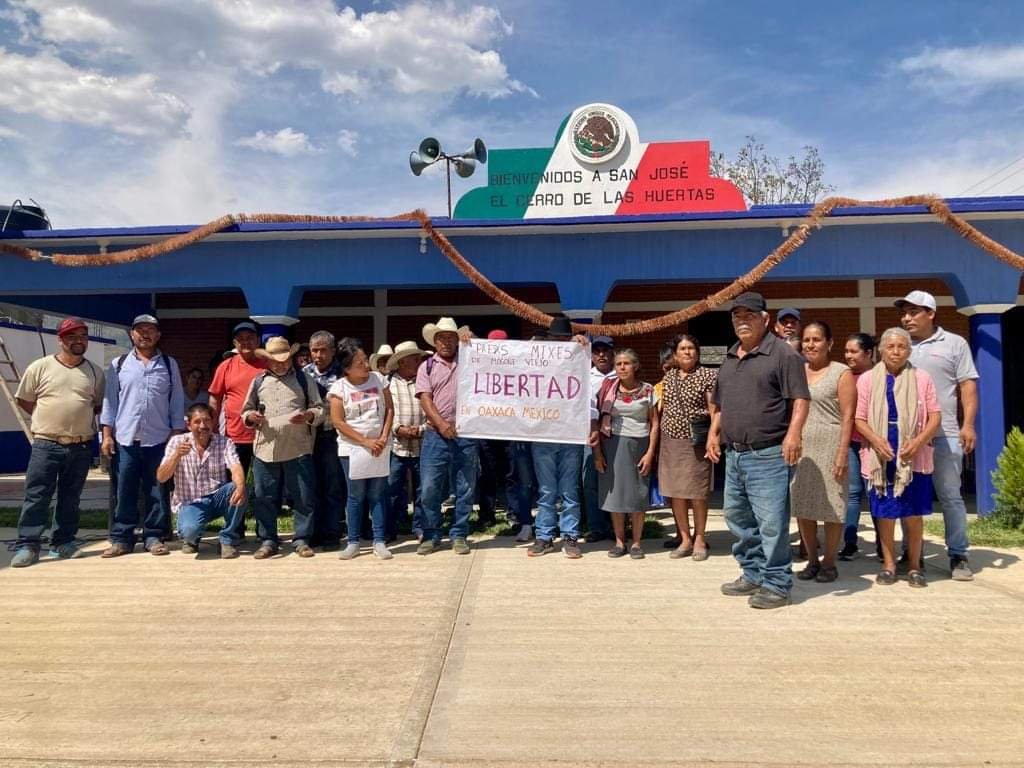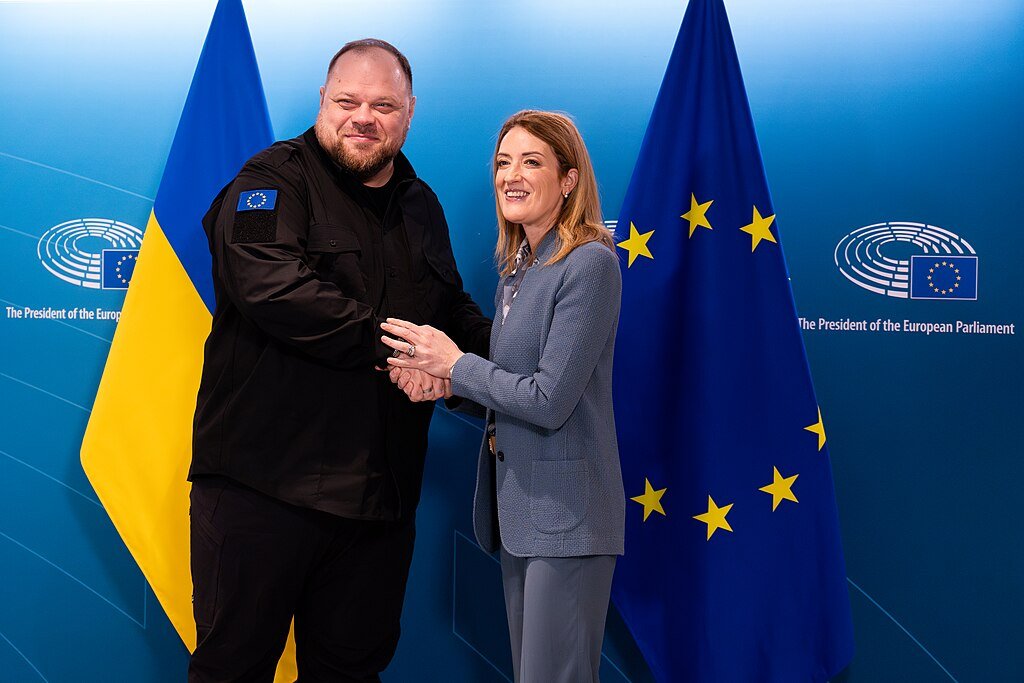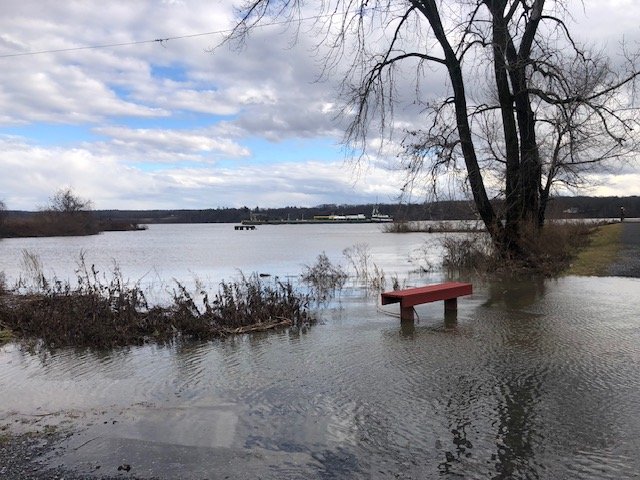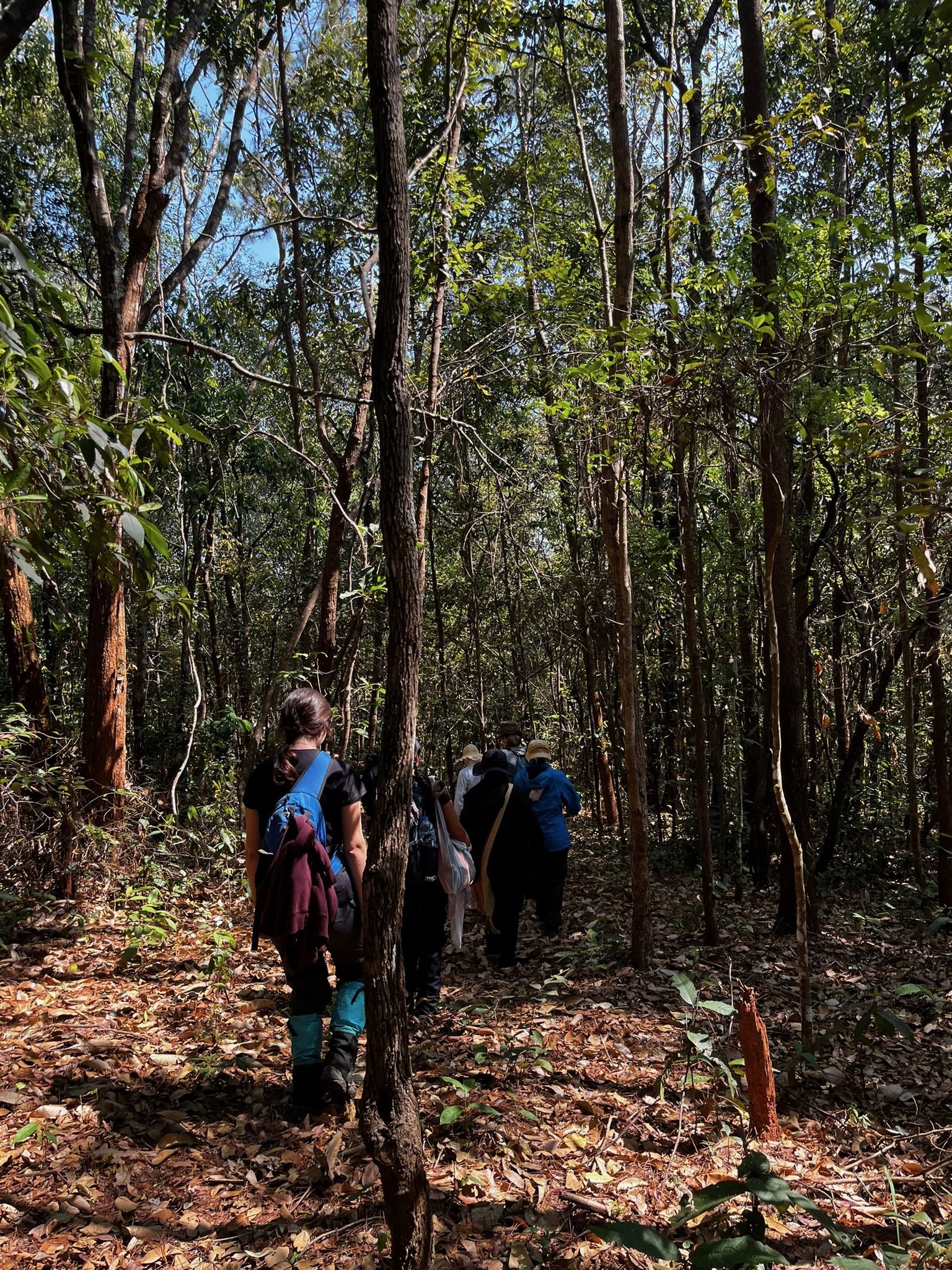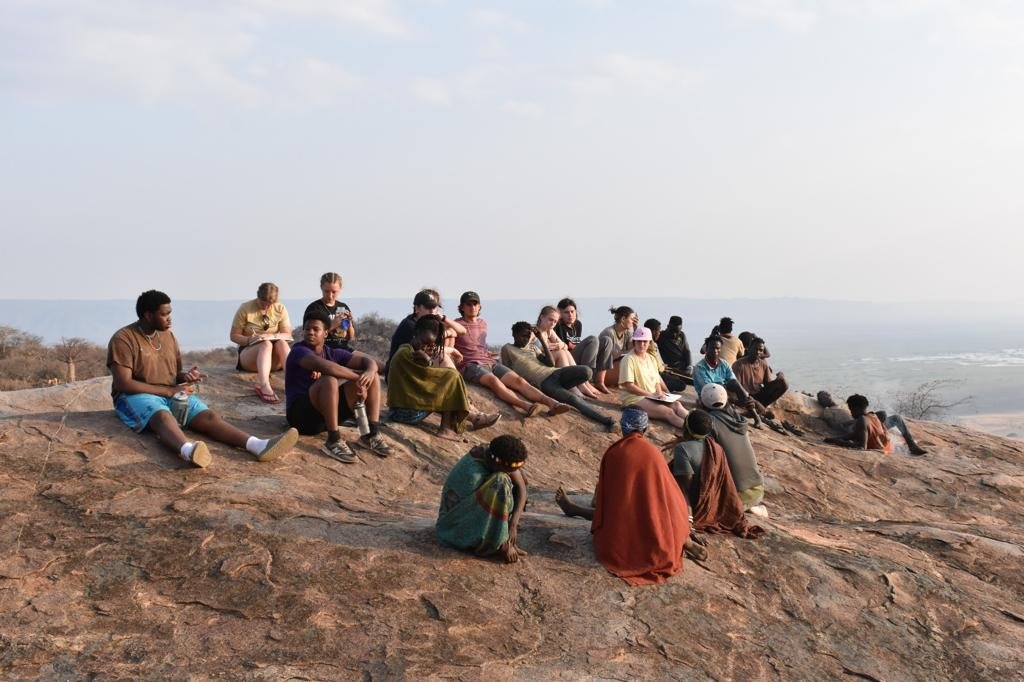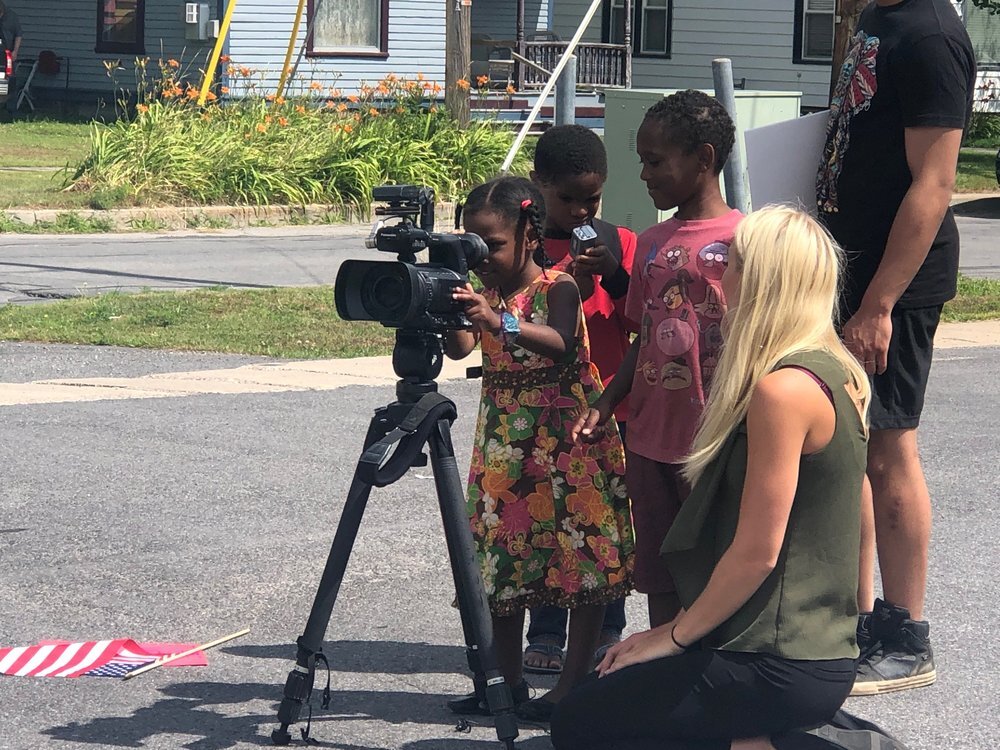
Stories
News

Analysis
Voices
Podcast
Announcements
Events

All Stories
Accelerating Extremism: Far-Right Stickers and Billboards
Over Thanksgiving weekend I was making the trek from northern Virginia to New York State’s Capital Region and back. I took two different routes, mainly to avoid tolls on the return trip. On the way back to Virginia, I came across a number of stickers and billboards featuring several unsettling far-right symbols. My investigation into each of them was disturbingly easy; a simple Google search resulted in pages of far-right online content. Although the movement is increasingly based online, the lived consequences are severe. Each of the symbols I witnessed is a tiny signal of the movement’s very serious threat to democracy.
Chueca: Looking Beyond Left Vs. Right
In her second installment of our Weaving the Streets series, Skylar Bergeron continues her exploration of the Chueca neighborhood in Madrid, where the politics of queer liberation defy simple divisions between Left and Right parties.
Trapped in the Workplace: Hong Kong’s Migrant Workers Endure COVID
Gaia Guatri reports from Hong Kong, where several NGOs have called for the government to implement measures to check and provide acceptable living standards of foreign domestic workers (FDWs) during the COVID-19 pandemic.
Intersecting Roots: Arab Diversity in Amman
“Amman has experienced successive waves of Palestinian, Iraq, and Syrian refugees for many decades as it is seen as the most economically, socially, and politically stable capital in the region. Therefore, many of the refugees — displaced by decades of “western” (especially American) interjection into the region — tend to resettle in Amman…People of various Arab regions were removed from their homes and a once familiar life, and forced to relocate and re-establish their lives and stories elsewhere so often, and yet have not forgotten the foundation of their strife.”
Chueca: Between Rainbow Capitalism and Fascism
In her first Weaving the Streets article, Skylar Bergeron reports from the Madrid neighborhood of Chueca, where a tradition of LGBTQ+ pride mobilization exists uneasily with the forces of capitalist “pinkwashing” and far-right intimidation.
#ProofOfLife: Eswatini Protests and the Power of Digital Activism
As ordinary people in Eswatini/Swaziland take to the streets to protest in favor of human rights and democracy, digital activism is playing an important role. Weave News contributor Phiwa T. argues that instead of dismissing such efforts, we should recognize that forms of digital protest can work hand in hand with traditional forms of street-level activism.
The Penalties of Universalism: Football and French Racism
When Zinedine Zidane “chestbutted” an Italian opponent during the 2006 men’s World Cup final, he struck a blow for all footballers who have been victims of racism. Joe Simeone explores how Zidane’s action exposed the dominant French idea of “universalism” and the racism it is designed to hide.
A Sense of History: Lessons From Haiti’s New Political Uprising
As students continue to play a key role in mass protests in Haiti against the current government of Jovenel Moïse, Jesús G. Ruiz argues that it is time we look to Haiti once again, not just for inspiration but also for lessons on how to engage politically and fight for one’s freedoms and rights.
Moving the Ball Forward: Professional Athletes and Social Change
Professional athletes are great examples illustrating how change comes from the bottom-up: they do not just have to be reflectors of the society they live in; rather, they can lead it if they use their platforms to do so. Athletes can be viewed as the workers in the large corporations that are their respective leagues, and they have always been the ones a step ahead of the establishment.
The Real Antidote to Trumpism
As the United States shifts to the Biden Administration, after four turbulent years of Donald Trump, the North Country Poor People’s Campaign offers its vision of a movement that can provide a viable alternative to Trumpism: a movement led by the poor and dispossessed.
Drought, Disease and Isolation: The Urgent Situation of the Wayuu in La Guajira, Colombia
The deep consequences of interconnected globalized systems paired with destructive localized human actions is on full display in the La Guajira peninsula of Northeastern Colombia. Daniel Henryk Rasolt reports on the dire situation facing the Wayuu Indigenous Peoples.
After January 6th: Critical and Grassroots Perspectives
On January 22, Weave News hosted a live panel discussion focusing on the January 6 attack on the US Capitol and its implications for struggles for justice in the United States. The panelists were Damon Berry, Nicole Eigbrett, Thahitun Mariam, and Steve Peraza.
Sahrawi Human Rights Depend on Businesses Prioritizing Ethics Over Profits
As an inducement to defy its population’s strongly pro-Palestine beliefs and normalize relations with Israel, the U.S. government has announced it will reverse decades of respect for international law and recognize Morocco’s longtime claim to Western Sahara. However, the U.S. government should not be allowed to decide the identity of a people. What is needed is for businesses to step up to the plate and stop working with Morocco to profit off of Western Sahara’s natural resources.
Shifting Ground: Farming, Land Use, and Food Sovereignty
In the first installment of her new “Shifting Ground” series, Himanee Gupta-Carlson introduces us to the experiences that have led her and her husband to make a commitment to “cultivating food security on a regional level through regenerative agricultural practices and participating in food sovereignty movements worldwide.” The series will trace their journey over the coming year as they move their farm to a new location following racialized protests against their agricultural practices in their current location.
Food Sovereignty and the Future of Regenerative Farming
In his third article previewing the upcoming North Country Art, Land, and Environment Summit to be held from September 9 to October 2, Derek Sherrange draws on the work of educator and farmer Dr. Himanee Gupta-Carlson to explore the concept of food sovereignty and its relevance for the work of overcoming settler-colonial structures and building regenerative forms of agriculture.
On Settler Colonialism: Hearing from the Kanien:keha'ka (Mohawk) Nation
In preparation for the upcoming North Country Art, Land, and Environment Summit to be held from September 9 to October 2, Derek Sherrange begins a new series on food sovereignty and decolonization. In this first installment, Sherrange provides an overview of the concept of settler colonialism and shares the insights of Katsitsionni Fox (Bear Clan), a Kanien:keha'ka (Mohawk) artist, filmmaker, and educator.
Sentiments of a Black Scientist: Letter to My White Colleagues
“You have the privilege to choose when you want to listen, reflect, and act on diversity in STEM. Because you have chosen, for now, to listen, can I make a suggestion? Rather than replying with sympathy, stories, and silver linings, develop a plan for what you’re going to do to change.” In his contribution to our Surviving PWIs for POC series, Charles Scaife writes a letter to white scientists.
How Was Your Weekend?
To break the awkwardness of a group discussion, a student asks, “how was your weekend?” For Namarig Kram, the question from a white classmate was a window into the dynamics of racism on and around her university campus in northern NY. Read her story in the latest installment of our Surviving PWIs for POC series.


